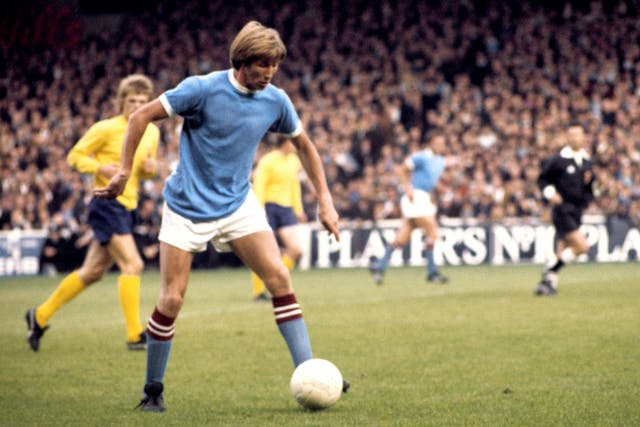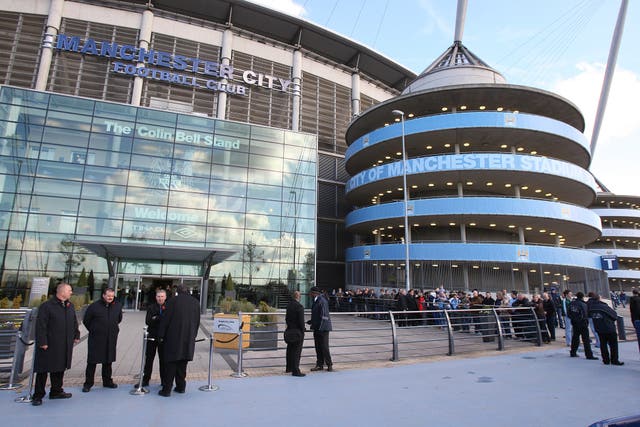Colin Bell is regarded as one of the greatest players to have played for Manchester City and one of the finest English midfielders of his generation.
Known as ‘The King of the Kippax’ by fans and compared to a Derby winner because of his extraordinary stamina by colourful coach Malcolm Allison, Bell was at the heart of City’s successful side of the late 1960s and 70s.
He made 492 appearances for the club over 13 seasons, scoring 152 goals, and also won 48 caps for England, netting nine times. Those statistics may have been greater had injury not curtailed his career.
Bell was a youth player with Horden Colliery Welfare before joining Second Division Bury as a teenager, having had unsuccessful trials with Newcastle, Sunderland and Arsenal.
He quickly established himself at Gigg Lane and became the Shakers captain, attracting the interest of bigger clubs in the process.
City were keen but short of funds. Folklore has it that Allison used to watch him but bemoan his ability within earshot of other scouts, to mislead them, until City could afford the fee. They eventually signed him for £45,000 in 1966 – “an unbelievable bargain,” said Allison, who coached and later managed City.

Allison, who regarded him as “world class”, was the first to dub him ‘Nijinsky’ after the famous racehorse.
He scored on his debut and helped City secure promotion in 1966 and was one of their stand-out players as they edged out Manchester United to win the First Division title two years later.
FA Cup success followed in 1969 and two more trophies, the League Cup and the European Cup Winners’ Cup, were won in 1970. He was the club’s top scorer three times.
He made his England debut in 1968 and was a member of the squad at the 1970 World Cup in Mexico.

In terms of the action, however, he was used sparingly and unwittingly gained an unwelcome place in history as the man sent on for Bobby Charlton in the quarter-final defeat to West Germany.
He was earmarked as long-term replacement for Charlton in the England midfield but, after the frustration of failing to qualify for the 1974 World Cup, effectively had his career ended by a knee injury at the age of 29.
Bell, who had been in his prime, was out of action for two years after being hurt in a tackle by United’s Martin Buchan in November 1975.
He never blamed Buchan for what he regarded as an accident, but his comeback was not successful and he retired in August 1979.

He was uncomfortable in the limelight and guarded his privacy, as the title of his 2005 autobiography, ‘Reluctant Hero’, suggested.
It took a lot of cajoling by family and friends for him to write that book, but it saved his life. It was read by football-loving surgeon, Jim Hill, who, noting how Bell’s mother had died of bowel cancer, contacted him suggesting he be checked out. Bowel cancer was also diagnosed and within three weeks he was operated on.
Bell, whose name lives on in the ‘Colin Bell Stand’ named after him at the Etihad Stadium, died on Tuesday aged 74 after a short illness.
He is survived by wife Marie, children Jon and Dawn and grandchildren Luke, Mark, Isla and Jack.






